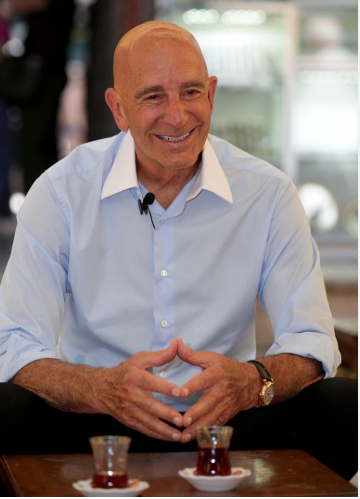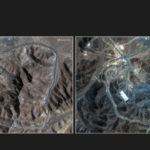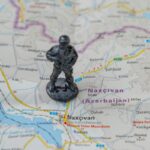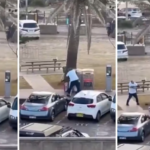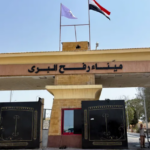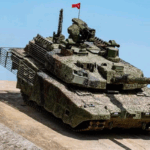The recent Israel-Iran conflict has created a historic opening for a new diplomatic path in the Middle East, and Turkey is poised to play a central role in reshaping the region’s political future, according to US Ambassador to Turkey Tom Barrack.
“What just happened between Israel and Iran is an opportunity for all of us to say: ‘Time out. Let’s create a new road,’” Barrack told Turkey’s state-run Anadolu Agency. “And Turkey is key in that new road.”
Speaking as both ambassador and US special representative for Syria, Barrack described a regional landscape in flux—one where entrenched hostilities are giving way to new alliances and dialogues, and where Turkey’s relevance is growing. “The Middle East is ready to have a new dialogue. People are tired of the same old story,” he said.
From Conflict to Diplomacy: Turkey’s Regional Relevance Elevated
Barrack emphasized that Turkey, long considered a strategic NATO ally, has not yet received the recognition it deserves as a regional powerbroker. “Turkey has never gotten the elevation of relevance that it should have as such a major regional player,” he said. “Leading up to this NATO meeting, we’ve always reflected on Turkey as being a great NATO ally—but it’s more than that now.”
He reflected on a moment during the NATO Summit in The Hague where Presidents Trump and Erdoğan stood side by side. “You could see President Trump, who is very emotional inside—actually sweet, kind, gentle—but usually doesn’t display it in a power setting. When they shook hands… I mean, this was a stunning moment. They really like each other.”
Barrack described this personal rapport—between Trump and Erdoğan, as well as between Secretary of State Marco Rubio and Turkish Foreign Minister Hakan Fidan—as foundational to moving the bilateral agenda forward. “We started with an affinity and an understanding of those four people having a personal relationship of trust with each other at a very, very important time in history,” he said.
Syria, Israel, and the Promise of Regional Peace
Turning to Syria, Barrack praised Turkey’s role in shaping the new political order there. With Bashar al-Assad toppled and President Ahmed al-Sharaa now in power, Barrack said peace between Syria and Israel is no longer out of reach.
“President al-Sharaa has indicated that he doesn’t hate Israel, harbors no religious animosity, and wants peace on the border,” Barrack said. “I think that will also happen with Lebanon. It’s a necessity to have an agreement with Israel.”
“What is happening in Syria is in big part due to Turkey,” he added, referring to Ankara’s longstanding support for Syrian opposition forces. “Turkey can play a central role in changing the regional narrative.”
He stressed that the United States under President Trump will only recognize the central government in Damascus going forward: “There’s only going to be one nation-state that we’re going to deal with, and that’s the government of Syria.”
Barrack also commented on the Syrian Democratic Forces (SDF), saying they—like other groups—must be integrated into the new Syria. “The SDF, which had a component of what we call PKK/YPG, fought by the side of the Americans against ISIS. But now they, along with the Alawites, Druze, and other communities, must be politically and militarily integrated into the new Syria.”
Ceasefire in Gaza and Revival of the Abraham Accords
Barrack predicted that a ceasefire in Gaza was imminent and could serve as a catalyst for broader regional reconciliation. “We’re going to see a ceasefire in Gaza in the near future. I think we have the right team on it,” he said.
He linked this momentum to a potential revival of the Abraham Accords—US-brokered normalization deals between Israel and several Arab states. “Everybody is starting to move back towards the Abraham Accords, especially as the Gaza situation dissipates,” he said. “The people are ready. The leadership is there. It’s time for a new story.”
Turkey-Israel Ties Can Be Rebuilt
Despite current tensions, Barrack expressed confidence that Turkey and Israel could repair their strained relationship. “It can happen again. It’s not a religious issue; it’s a misunderstanding of territorial desires,” he said. “So having a discussion, a dialogue… will take place.”
He highlighted Izmir as a model of peaceful coexistence, citing its long history of Muslims, Jews, and Christians living side by side. “To me, Izmir is the example of how you blend all of these communities,” he said. “I look at this as the example of what needs to happen in the Middle East.”
From Defense to Strategic Partnership
Barrack also discussed efforts to resolve long-standing military disputes between the US and Turkey, including the F-35 fighter jet program and the CAATSA sanctions imposed over Turkey’s acquisition of Russian S-400 missiles. “I think what you’ll see is President Trump and President Erdoğan telling Rubio and Fidan, ‘End it. Figure out the way and end it,’” he said.
He underscored that Turkey had paid for F-16s and contributed to the F-35 supply chain. “Let’s start fresh,” he said. “Congress will support an intelligent conclusion. My belief is that by the end of the year, we’ll have a solution.”
“For the first time, you have an American commitment and a Turkish commitment to say: Instead of just being defense partners, let’s be offense partners. How do we help the Turkish people, and how do we create more understanding with the American population?”
He also praised Turkey’s defense industry, calling Baykar’s TB2 drones “a global success,” and lauded Turkish Airlines as one of the best carriers in the world. He also reflected on his strong personal connections to Turkey. He recalled that his grandfather immigrated to America in 1900 with an Ottoman passport and 13 liras. He stated, “It’s a privilege to return to my ancestral roots as a senior diplomat for President Trump.”
Final Thoughts: A Middle East at a Turning Point
From Gaza to Damascus, from Ankara to Tel Aviv, Barrack sees an inflection point. With US and Turkish leadership aligned, the ambassador envisions a renewed diplomatic push, underpinned by mutual respect, cultural coexistence, and shared strategic interests.
“Why can’t we live peacefully?” Barrack asked. “Whatever my religious practices are, I’ll do it in peace. And I think you’re going to see Syria as the experiment of getting this done the quickest.”

